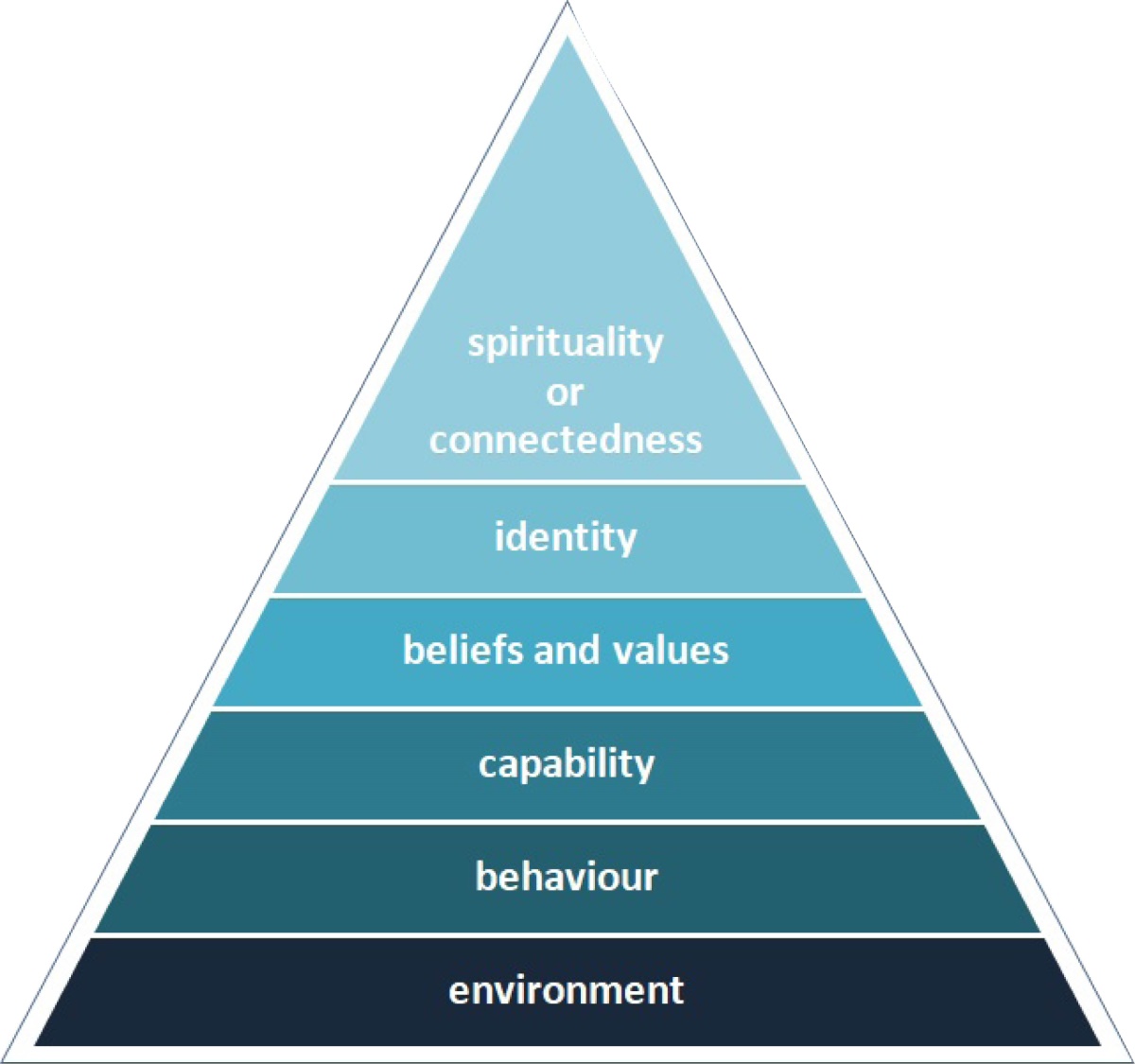20 April 2020: Helping you navigate through these uncharted waters
The events of 2020 have changed everyone’s thinking.
I was just about to launch our brand-new online profiling tool, Logical Levels Inventory (lli) when the global pandemic struck and the shutters were pulled down. We put the formal launch on hold, but I recognise that the Logical Levels model, on which lli is based, is relevant to you now more than ever before.
There is no model I know of that is more appropriate for leaders to use right now to help your business thrive through the challenge that the current global situation is presenting.
So, over the next few weeks, I will be sharing key elements and insights which will support all leaders, helping you steer yourself, your teams and your business through these uncharted waters.
- I’ll take you step by step through the Logical Levels model – a proven model and practical tool that helps you analyse any problem or change
- I’ll share insight into the Extended Logical Level model – helping you dive deeper to understand your balance and congruence at every level
- And I’ll explore the nine leadership skills which we have identified as essential for future success, especially when leading through uncertainty and change.
Let’s start with ‘change’ – the trigger for this blog

There are three fundamental components we need to consider for change to be successful:
- There has to be the opportunity for change: Well, there’s no mistaking that the opportunity is with us right now!
- There has to be a desire for the change: Creating desire is always harder when change is forced upon us. The first step is to accept it. No amount of fighting or flailing is going to remove it. Acceptance is key. Once we get to a place of acceptance, we can move to the positive space of using the change for good.
- There needs to be the knowledge and skill in how to change effectively: No one has ever been in this situation before, and organisations are having to make change on a scale and at a speed that is unprecedented. The truth is that we are all making it up as we go along. However, as you focus on all the changes you are having to make, the Logical Levels can help leaders find a route through the complexity and the different situations you are facing.
Introducing the Logical Levels model
The Logical Levels model is a way of thinking.
It can be applied to individuals, organisations, relationships and systems.
This simple model is an amazing diagnostic tool and has the ability to ‘unpack’ our thinking – by that I mean take complex issues and break them down into the relevant levels. By working out what is happening at each of the different levels, you create a space for clarity of thinking and analysis. This in turn enables you to focus and prioritise your energy and your resources in the most appropriate way.
The Logical Levels model was created in the 1970s by Robert Dilts – an international expert in leadership and change management, and it helps us understand the different levels at which we experience our world.
Let’s take a quick look at the levels:

If I were working with you right now, I would begin by asking you to think about the following six questions - based on each level of the model:
1. Environment: This is where and when we act
What is the environment in which your business operates and to what extent has this changed over the past few weeks?
2. Behaviour: This is what we do and think
What behaviours are essential for your business to operate, how has this changed over the past few weeks and what new behaviours are necessary to ensure success going forward?
3. Capability: How we think and plan
What skills, knowledge and experience are needed in your business right now and going forward to ensure you are successful?
4. Beliefs and Values: Why we think and act the way we do
What are the shared organisational values and beliefs that will drive your business forward or hold you back and how are you using these to drive the numerous decisions you are making each day?
5. Identity: Who we perceive ourselves to be
What is your organisation’s sense of identity and how is this guiding your current actions?
6. Purpose: For whom and for what we dedicate ourselves
What is your organisation’s vision and how can that give a sense of meaning and purpose for the actions you need to take?
What next?
Each of the questions so far has been asked in the context of the organisation you lead. They can equally be asked of you as the leader, or for each of your separate teams.
Over the next few days, try and spend a moment to explore each of the questions, working through them in turn to notice where change needs to occur.
As you think through the answers to the questions, you will start to create a clear and effective plan that can guide you and your organisation through the challenges we are all facing.

We’ll explore aspects of lli in more detail in later blogs. In the meantime, if you wish to explore how this exciting new online profiling tool might help you, please get in touch with us through info@logicallevels.co.uk.
Hilary Barnett, co-founder, Logical Levels Inventory (lli)

